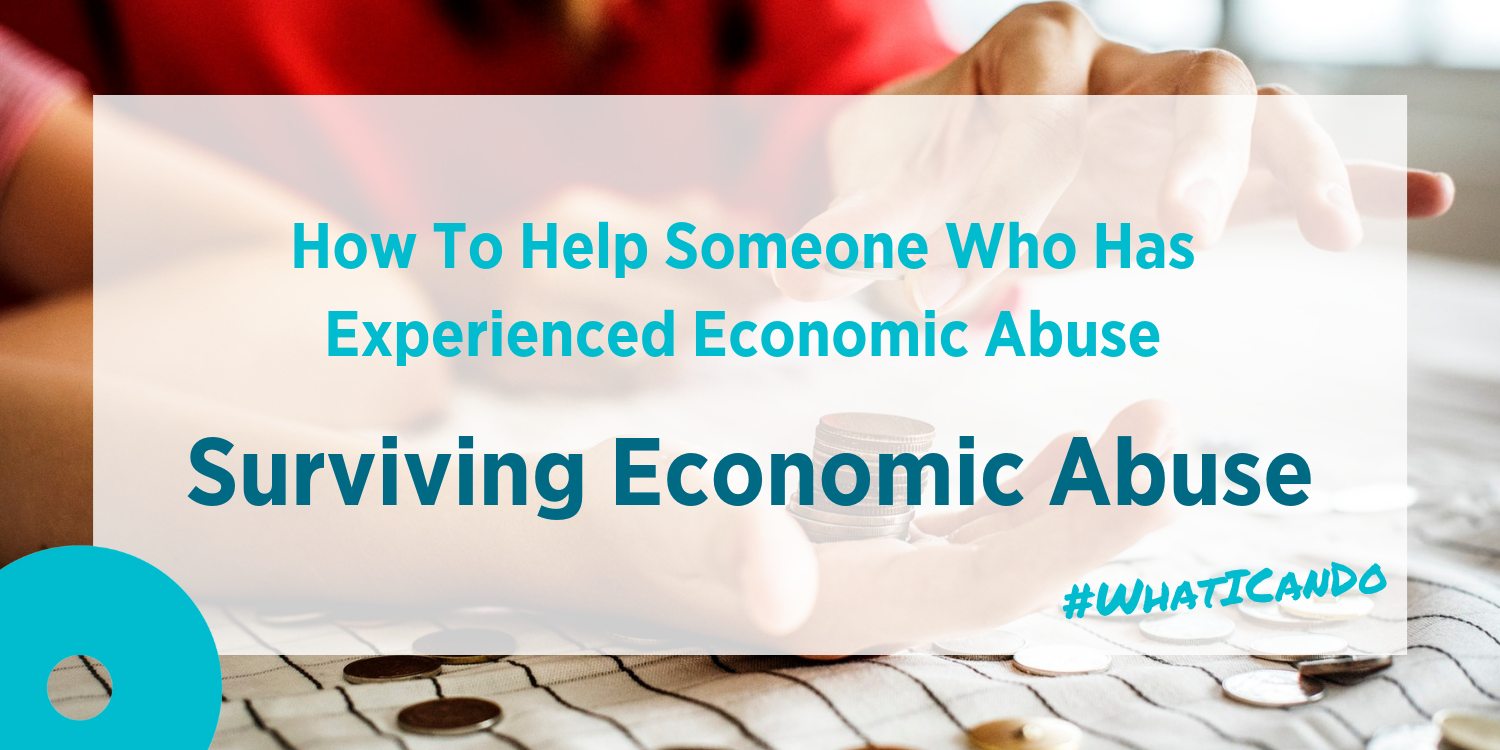The mission of Surviving Economic Abuse (SEA) is to raise awareness of and transform responses to economic abuse. We want society to understand what economic abuse is, how to recognise it within the context of domestic violence and what individuals can do to support victim-survivors. We work with a group of women who are ‘Experts by Experience’ and asked them what a friend, family member or colleague could have done to help. This is what they said:
1. Look out for warning signs –
• Not having enough money: leaving their purse ‘at home’ on a few occasions; being short of money/unable to buy something inexpensive even when they work; asking to borrow money to pay bills for essential items; food being in short-supply.
• Joint-finances: appearing to be in some kind of ‘conflict’ with a partner concerning money, earnings or savings; saying their partner deals with all money matters and having no knowledge of service providers or how much things cost; not having access to the joint bank account; wages/benefits being paid directly into partner’s account.
• Shopping habits: always using cash and not a card; counting the pennies and making lengthy decisions when shopping; buying cheap items; seeking their partner’s permission before making any purchases; hearing statements like ‘he won’t let me spend money on that’;
• Not working: leaving work when you know they liked their job; expressing a desire to work but their partner not supporting them in this.
• Not socialising: making excuses not to join friends for coffee and meals out; working hard and looking after the children whilst their partner is out all the time.
• Appearance: wearing ill-fitting/run-down clothing; not having a coat to wear outside in winter time; not having the money to have their hair done; not being able to buy personal items.
• Appearing anxious: hiding what she has bought so her partner does not see it; ‘over-reacting’ to normal situations such as going out for a meal or planning a holiday.
2. Offer support –
• Express concern; don’t ask too many questions, but say help can be found
• Believe
• Take time to listen; recognise that it may take time to act; don’t force a response
• Provide practical help: have information about domestic abuse services to hand; help sort out an action plan; offer a spare bedroom; provide basic essential items
 Find out more about Surviving Economic Abuse here, or follow them on Twitter and Facebook.
Find out more about Surviving Economic Abuse here, or follow them on Twitter and Facebook.
Learn more about our partnership with Surviving Economic Abuse here.
Read more like this:
- Abuse Isn’t Always Violent | Revenge Porn Helpline
- The Conversation Has Started. It Continues With Employers | The Corporate Alliance
- 16 Days of Activism 2018



